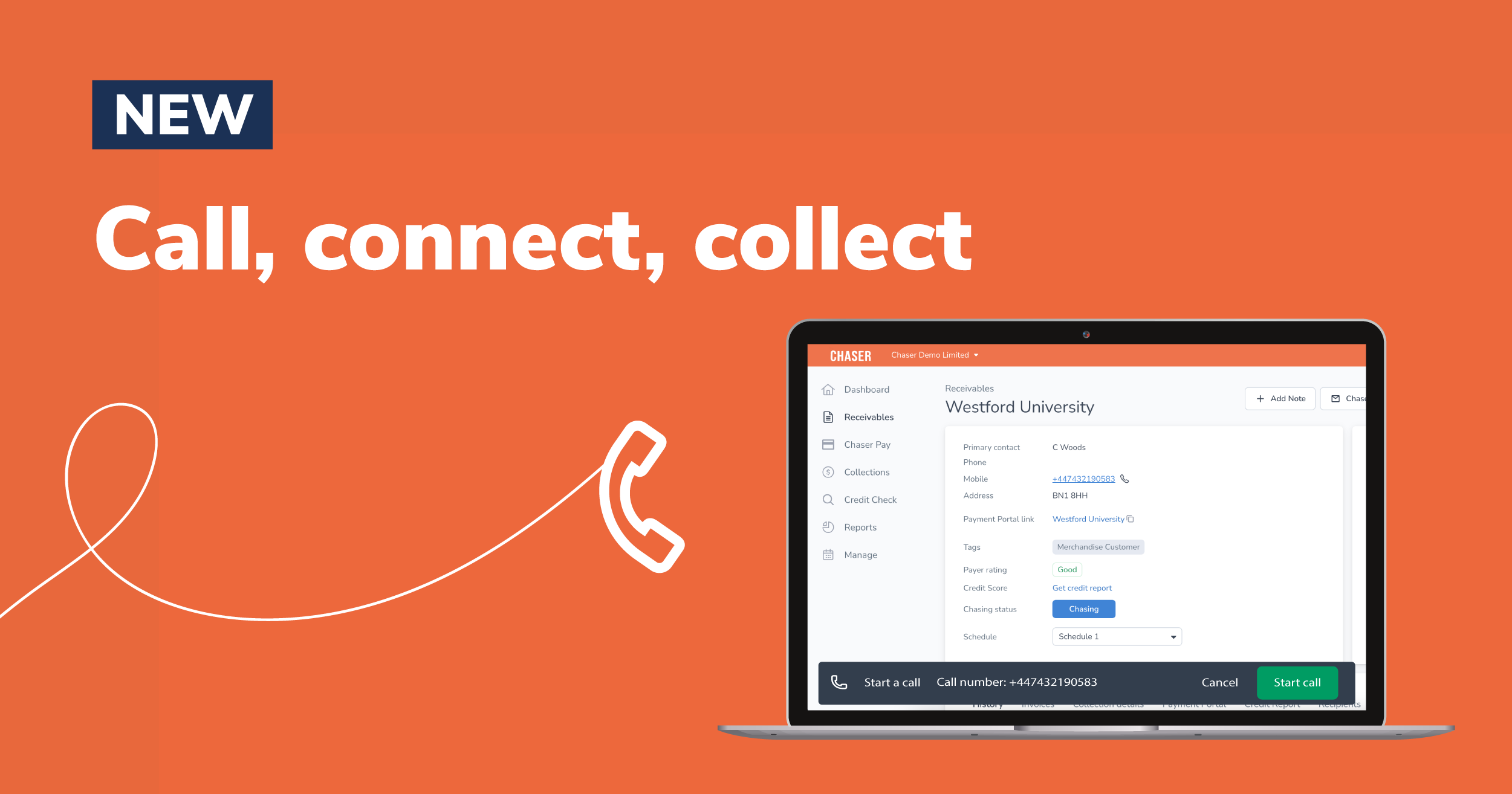In business operations' labyrinth, debt negotiation is inevitable. It is crucial in managing financial obligations, especially when dealing with creditors or lenders. Whether you are an individual or a company, negotiating debt can be challenging and requires careful planning and execution.
For financial advisors and small business owners, the act of reclaiming what's rightfully yours while retaining goodwill can be likened to a delicate dance, where each step must be carefully orchestrated to avert potential damage to business relations.
This comprehensive guide illuminates the path to an amicable resolution with debtors, an art that, when mastered, can be a pivotal force in the longevity and reputation of your enterprise.
Tackling the pitfalls of late payments: an all too familiar predicament
The narrative often begins where stellar service or a product of undeniable quality is provided, but the compensation doesn't fulfill the circular economics of the transaction. Late payments are not merely statistics; they are thorns that undermine the financial vigor of businesses, especially small and burgeoning enterprises.
In a survey by the National Small Business Association, 64% of small business owners reported having experienced late payments, with an average delay period of 16 days. The financial strain is further exacerbated by businesses typically having to wait for a maximum of 30-90 days before payment is received. This delayed compensation means businesses often struggle to pay rent, bills, or even their employees.
The consequences of late payments go beyond financial strain. It can also lead to a strain on business relations and damage to the reputation of both parties involved. The debtor may lose trust in the creditor's ability to fulfill their obligations, while the creditor may perceive the debtor as unreliable or untrustworthy.
The ripple effect on the financial tapestry
A late payment is not just a financial indiscretion; it's a brick dislodged from the edifice of your business's financial health. It disrupts cash flow, stymies growth, and erodes profitability. It's akin to a punctured tire on the vehicle of business progress, rendering it immobile and vulnerable in the marketplace.
In the UK alone, late payments are estimated to result in approximately 50,000 small businesses closing each year, with a collective loss of over £2.5 billion in annual productivity. This ripple effect can also impact the larger economy, as businesses are forced to reduce their spending and investments, decreasing overall economic growth.
A window into the world of your debtor
Debtors are not malevolent entities conspiring to undermine your bottom line. Often, they are well-intentioned counterparts grappling with their own business turmoils, making late payments a regrettable yet inevitable occurrence. Understanding the debtor's perspective can be valuable in approaching debt negotiation.
For instance, reaching out and communicating with the debtor can provide insight into their financial struggles, potentially resulting in a mutually beneficial solution. Furthermore, open communication can foster trust and preserve business relations, preventing any adversarial or confrontational approaches.
The power of persistence and preparation
Debt negotiation is not for the faint of heart. It requires tenacity, patience, and a keen eye for detail. Before entering into negotiations, it's crucial to understand your financial needs and expectations from the debtor clearly. This includes setting realistic goals, identifying any potential concessions or compromises, and having supporting evidence to back up your claims.
Persistence is also key in debt negotiation. It may take multiple attempts to reach a mutually agreeable solution, but remaining calm and professional throughout the process is essential. This can help maintain a positive tone and avoid any confrontational or hostile exchanges.
Common negotiation tactics to consider
There are several negotiation tactics that can be employed during debt negotiation, such as offering a discount for early payment or setting up a payment plan. It's important to carefully consider each tactic's potential consequences and benefits before implementing them.
Additionally, seeking outside help from a financial advisor or debt specialist who can provide unbiased advice and expertise in the negotiation process may be beneficial. They can also assist in drafting a formal written agreement to ensure both parties are clear on the terms and conditions of the negotiated debt.
The empathy equation
Empathy is the harbinger of productive negotiation. It's more than understanding; it's about acknowledging the challenges and extending a hand, even as you seek to secure your interests.
By delineating the debtor's struggles, you take a step toward a solution that transcends the mere balance of numbers on a sheet. It's about maintaining goodwill and preserving business relations, ensuring a healthier financial landscape for all parties involved.
Gearing up for the negotiation gauntlet
Preparation isn't just a prelude to the negotiation process; it is the anchor tethering you to the objective reality of the situation. It's about laying down your arsenal of information and strategy.
Unveiling the power of preparation
Preparation begins with forensic scrutiny of the debtor's payment history through your AR platform and then segues into broader financial reconnaissance. It is about unearthing the assets and liabilities that stipple the debtor's current financial canvas, which paints the landscape for a negotiated resolution.
The importance of documentation
Documentation is the backbone of any negotiation process. It provides tangible evidence of the financial transaction and serves as a reference point for both parties. Any verbal agreements or concessions should be documented in writing to avoid misunderstandings or disputes.
Having clear documentation can also serve as leverage during negotiations, demonstrating your professionalism and preparedness. It shows that you are serious about resolving the issue and can strengthen your position in securing a favorable outcome.
Crafting a strategic framework
Strategy in negotiation is quintessential. It is about identifying your leverage and using it judiciously. Perhaps an attractive discount for swift payment could sweeten the deal, or a structured payment plan could offer a port in the debtor's storm. These strategic plays adorn the chessboard of negotiation and dictate the eventual outcome.
However, it's essential to strike a balance between securing your interests and being fair to the debtor. An overly aggressive approach can damage relationships and hinder future business dealings. Therefore, crafting a strategic framework that considers both parties' needs is crucial for successful debt negotiation.
Winning strategies in the debt negotiation arena
A successful negotiation is not happenstance; it is the confluence of a well-crafted strategy and some shrewd maneuvers that you can arm yourself with.
Building rapport
Establishing a good rapport with the debtor can significantly impact the negotiation process. By showing empathy and understanding, you can build trust and open up lines of communication for more productive negotiations.
Making concessions
It's essential to consider making concessions in any negotiation to reach a mutually beneficial agreement. This could include offering discounts or payment plans, as mentioned previously. However, it's crucial to carefully consider any concessions and ensure they align with your financial needs and goals.
The power of the right proposition
A proposition is not merely about the terms of repayment; it's about the panache with which it's presented. For instance, offering a discount or a payment plan isn't just a monetary accommodation; it's a gesture resonating with the debtor's plight and, consequently, their need for a resolution. Crafting a proposition that appeals to the debtor's interests and shows your willingness to work together can significantly impact the negotiation's outcome.
Successful debt negotiation requires persistence, proper preparation, empathy, and strategic thinking. You can achieve a mutually agreeable solution by understanding the debtor's financial situation, crafting a strategic framework, and being willing to make concessions while maintaining professionalism.
Navigating the legal landscape of debt negotiation
Legalities are the thread that mends or severs the fabric of successful negotiation. Understanding and adhering to the Fair Debt Collection Practices Act (FDCPA) is not just advisable; it's imperative.
The FDCPA compass: Guiding you safely through negotiation
The FDCPA governs the conduct of debt collectors, ensuring they don't employ any abusive or deceptive practices. Understanding its tenets provides boundaries within which your negotiation must operate, ensuring that your conduct is beyond reproach.
It's also essential to research and understand any state-specific laws that may apply to debt negotiation, as they may have additional requirements or restrictions. Staying informed and compliant with all applicable laws is crucial for successful debt negotiation.
Seeking outside help: The key to unlocking a successful negotiation
Negotiating debt can be daunting, especially for those without experience or expertise in the field. Seeking outside help and guidance from a professional debt negotiation company can greatly increase your chances of reaching a satisfactory resolution.
The benefits of professional assistance
A professional debt negotiation company can provide invaluable resources, such as experienced negotiators, legal expertise, and access to advanced technology and information. They can also act as a neutral third party, helping to facilitate communication between you and the debtor and keeping emotions in check.
Additionally, outsourcing debt negotiation can save time and resources, allowing you to focus on your core business activities. With their expertise and support, you can confidently navigate the negotiation process and increase your chances of a successful outcome.
Seeking legal counsel
Consulting with a legal expert isn't an act of deference to caution; it's an affirmation of responsibility to the letter and spirit of the law. A legal counselor can preclude inadvertent breaches and safeguard the sanctity of your negotiation practices.
Leveraging technology to streamline the negotiation process
In today's digital age, technological advancements have revolutionized the way we conduct business. This also applies to debt negotiation, where utilizing technology can significantly enhance your efficiency and success rate.
Communication and documentation
Technology allows for more accessible communication between parties through various email, messaging apps, and video conferencing platforms. It also simplifies the documentation process, allowing for easier record-keeping and organization of essential negotiation details.
Data analysis
With the help of technology, you can analyze data and gain insights into debtors' payment patterns and behaviors. This information can inform your negotiation strategy and help you craft targeted propositions that are more likely to resonate with the debtor's needs.
Automation
Automation tools can streamline repetitive tasks, such as sending payment reminders and tracking payments, freeing up time for more crucial negotiation tasks. Chaser's debt collection software is one example of technology that can automate and simplify the debt negotiation process.
In conclusion, successful debt negotiation requires a combination of interpersonal skills, legal knowledge, and technological savvy. By leveraging these strategies and resources, you can navigate the complex world of debt negotiation and achieve positive outcomes for.
Your call to master the art of amiable debt negotiation
Debt negotiation is a mix of art, science, and legalities. Empathy, strategic thinking, and proper preparation are required to achieve mutually beneficial solutions. But with persistence, professionalism, and the right resources at your disposal, you can navigate this challenging process and come out on top.
So take the first step towards mastering the art of amiable debt negotiation by implementing these strategies and seeking the help you need. With dedication and perseverance, you can become a skilled negotiator and achieve success in your financial endeavors.
To find out more about how Chaser's debt collection software can help you streamline and improve your negotiation process, book a demo or start your 10-day free trial.




